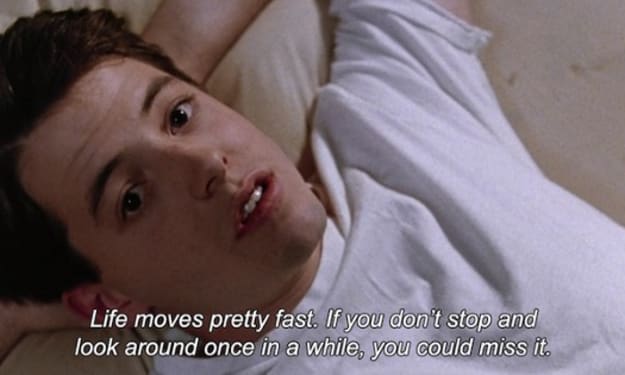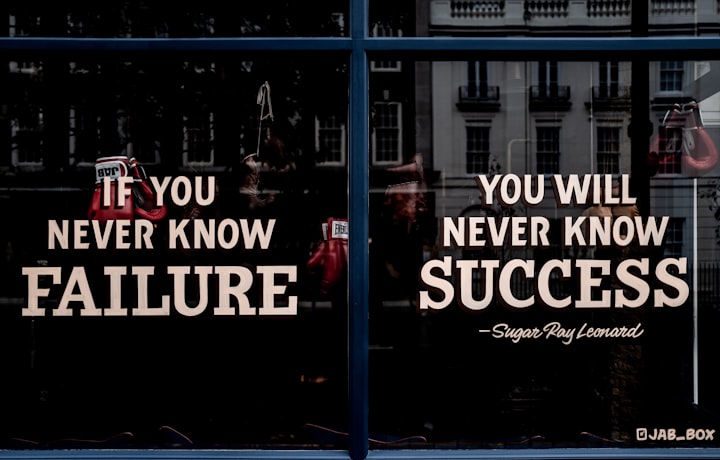It's Okay To Take a Year to Write Your Novel
How to stay on track to finish your novel in one year

I see how-to articles all the time with titles like “How To Publish Your Novel In 6 Months” or “How to Write Six Books a Year.” I immediately go to Amazon and type in that writer’s name to see what types of books they are writing or how well their books are doing. Most of the time, my search results do not reflect the attitude of the writer’s article. Or when it does, the author has only published how-to E-books that are under one hundred pages.
Thanks in part to social media and the internet, there’s this strong sense of urgency to write quickly and get our books out there so we can move on to the next project. It’s not just on the internet either. It’s in our everyday lives too. We’re growing ever more impatient with ourselves and with our lifestyles. We pay for commercial-free streaming services. There are Netflix shows where each episode is only fifteen minutes long. We scroll past a blogger’s three-minute essay about her great grandmother’s apple pie just to hurry up and get to the recipe!
Most of this writing urgency was born from the E-book self-publishing boom that began with Amazon Kindle in 2007. Smashwords launched in 2008. B&N’s Nook came around in 2009. Kobo followed in 2010. Other platforms popped up along the way giving rise to the “indie author,” and a plethora of 99 cent E-books soon built readers’ digital libraries overnight.
Some of those books were really good. Some were really bad. Success stories like that of millionaire indie author Amanda Hocking fed chatter on message boards, and authors everywhere grew eager for the same exposure. So, we set out to write and publish as many books as we could, and these digital self-publishing platforms made it easy to do just that.
In Stephen King’s memoir, On Writing, he mentions that he likes to take an entire season, about four months, to write a book. That’s four manuscripts a year. Yet, he only averages publication of about one book per year now. Sure, he wasn’t always like that. That’s why he created his pseudonym, Richard Bachman, so that he could publish more than a book a year back in the 70’s when one book a year was publishing protocol.
King started the memoir in 1997. He wrote the first two sections, and then set the book aside a year later. In 1999, he picked it up again and was determined to finish it. Then, he was hit by a van and almost lost his life. But this tragedy gave him the final section of the book which is entitled “On Living.” The memoir was his first book published after the accident.
One hopes a car accident, or something worse, doesn’t become our excuse for taking so long to finish our book. Usually most writers fall victim to good old procrastination. (Thanks again, Internet!) That’s why it’s important to ignore the online rush hour of writing and publishing and adopt a writing pace that fits your schedule, keeps you on track, and allows you time to write the best book you can.
Here are some tips to keep you focused on taking your time and getting your best novel written in one year:
Ignore the internet!
By this, I mean don’t read those articles about how to write or publish faster. We’ve been reading books for centuries. There will be plenty of readers for your book when you are done, no matter how long that takes.
Reserve “web surfing” for research or breaks only.
Ignore email and instant messages.
Put away your phone.
Disregard daydreams (for now)
Should I self-publish or find an agent? How do I find an agent? What font should I use for chapter titles? How do I format a copyright page? What does the internet think about prologues?
It’s okay to contemplate the perfect book cover or study Kindle boards on how to effectively market your paranormal adult romance on Facebook, but you’ve got to write that book first. If you self-publish, you’re going to spend a long time obsessing over editing, book covers, formatting, marketing, and such.
But first, you still have to write the book!
Set an action plan
How often are you going to write? How many words a day or how many pages a week?
Set a goal, but allow yourself breaks, and don’t beat yourself up if you occasionally fail. Make up for it the next day. It’s okay to change your goal until you figure out what works best.
My goal is simple: write every day. I don’t care if it’s one sentence, one paragraph, or one page. I just want to write something every day.
I also always aim for 80,000 words for a book. That’s a good size for a novel. If I go above that, even better. Do the math — that’s only 220 words a day!
Track your progress
Hang up a calendar and check off your progress or record your word or page count on each day.
I like to use a Goal Tracker app on my phone where I get a blue check if I wrote for the day or a red X if I didn’t. Being able to look back and see your progress makes you feel good about your project.
Find your Zen
By this, I mean to define the best time and space for you to write and take advantage of it every day.
I have the house to myself for just thirty minutes each morning and that’s MY writing time. I usually write more on the weekends, but those thirty minutes Monday through Friday can be quite magical.
Have a research or break day
Go to the library. Surf the web. Create outlines. Take notes. Visit a bookstore. Visit baby-naming sites to find names for your characters.
This is the day where you take a break from the writing zone. I like to go back and reread previous chapters and do some light editing on my break day. No new writing. I also make notes on a notepad to make sure my plot lines stay cohesive. This gives me a chance to step away from the computer completely.
Don’t get stuck
That’s easier said than done, but the importance is not to lose steam.
So what if you didn’t reach your word goal for the day! Or if a chapter isn’t going the way you expected, skip ahead and write something else.
I always start a novel from the very beginning and write straight through. I know I’m eventually going to get stuck in the middle. When I reach that point, I skip ahead and write the ending. Yeah, I might change the ending later, but at least I’m still writing.
Don’t be afraid to start over
Sometimes characters take over or storylines end up going in completely different directions than what we expected. Unexpected plot twists we didn’t think about can make writing fun!
Sometimes this can delay your progress. So what! Just keep going.
Use paper!
Don’t be afraid to print out your work-in-progress. Your book will probably be printed on paper one day anyway unless you are just doing digital-only. This is a great way to have a physical connection with your novel.
I love printing out my first draft and editing it on paper away from the computer. As I mentioned earlier, I also take notes on paper while I’m writing it. Lots of great authors, like Truman Capote, wrote their entire novels long-hand before sitting down at a typewriter.
It’s okay to think about what’s next
It never fails. You are writing a novel, and the idea for the sequel or another project starts creeping in and you start getting excited about that. Devote one day a week to it if you want, or grab that notepad and take notes. Use part of your research or break day to work on it.
You’ll be glad when you are ready to start the next project and you have a year’s worth of notes waiting for you.
Your book is all yours right now
Stephen King said it best when he said, “Write with the door closed, rewrite with the door open. Your stuff starts out being just for you, in other words, but then it goes out. Once you know what the story is and get it right — as right as you can, anyway — it belongs to anyone who wants to read it.”
What’s most important is that you just keep going. Writing can be a very lonely process, but that doesn’t mean it has to be boring. If it takes a year, or two, or more, that’s okay. In the beginning, you are writing for you! And you should enjoy it. Writing is a journey, after all!
About the Creator
Shannon Yarbrough
Author. Poet. Reader. Animal Lover. Blogger. Gardener. Southerner. Aspiring playwright.
Blog: www.shannonyarbrough.com
Twitter: @slyarbrough76
Goodreads: https://tinyurl.com/m4vbt2ru
My Books at Amazon: https://amzn.to/36n25yy






Comments
There are no comments for this story
Be the first to respond and start the conversation.